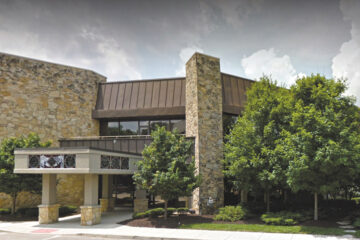Beth Abraham’s new rabbi

Jesuit university inspired Chicago native to enter the rabbinate
By Marshall Weiss, The Dayton Jewish Observer
When Rabbi Joshua Ginsberg was an undergraduate at Loyola University in Chicago, a priest who taught his early modern history class asked him what he was doing Jewishly.
Up to that point, he says, his life didn’t have much Jewish substance to it.
“Growing up in Skokie, I sort of had a natural Jewish identity,” says Ginsberg, Beth Abraham Synagogue’s new rabbi, on his third day of work at Dayton’s Conservative shul.
But he describes the Reconstructionist/Conservative congregation where he had his Bar Mitzvah as the shul he “didn’t necessarily go to.”
“The Catholics are very good at inspiring people to become more Jewish,” he says of his experience at the Jesuit university, where he majored in history and minored in sociology.
Ginsberg, 40, gives much credit to Loyola’s Hillel director for leading him on his journey to Judaism.
“She really just wanted to inspire you to find your place in Judaism and she really inspired me to take chances,” he says. “I was open from that point and from there I just kept on sort of exploring different aspects of Judaism and I always loved various academic fields which were associated with Judaism.”
A year after graduating from Loyola — following stints as a barista at a Starbucks competitor and as a waiter in a kosher restaurant — he began his rabbinic training at the University of Judaism in Los Angeles, now the American Jewish University.
He completed his training and received his ordination from Jewish Theological Seminary in New York.
“That was probably the best decision I ever made because I met my wife, who was in the cantorial school, Jenna Greenberg,” he says. “She had sworn to her parents she would not marry a rabbi. And despite her best efforts at keeping that vow, I broke her down.”
Her calling to the cantorate, he says, came through her experience as a music major at Earlham College, a Quaker institution in Richmond, Ind.
“There’s a small Reform synagogue (in Richmond), and they had student cantors because they had a small cadre of Jewish music majors who were Jewish, and she just took over and she found out that she wanted to become a cantor,” he says.
The couple will soon celebrate their 10th anniversary.
They and their sons, Ranon (6) and Elior (3), come to Dayton from Chicago, where the rabbi served Shaare Tikvah B’nai Zion for three years.
Prior to that, he was rabbi of Shaare Tikvah and Nevah Shalom Congregation in Bowie, Md. and assistant director and campus rabbi at the George Washington University Hillel in Washington, D.C.
At that time, his wife was associate cantor at Adas Israel Congregation in Washington. In Chicago, she taught at the Solomon Schechter School; she’ll join Hillel Academy of Dayton’s faculty part time. Ranon will attend Hillel; Elior will be enrolled at the DJCC preschool.
Dayton is located between Chicago and his wife’s family in Pittsburgh, so both sides, he adds, are happy with their choice.
Ginsberg says that when he entered the search for a new pulpit, Beth Abraham appealed to him because he saw a community that is committed, passionate, and strategic in its thinking.
“When I read that they had moved from an area where they had an established place, and they were able to bring the congregation — not just a few big hitters but the congregation seemed to rally around it — and they had rejuvenated and given themselves a sense of self-esteem and excitement about the future, it was a vibrancy there and also leadership that was capable of making difficult decisions for the long-term benefit.”
He sees one of his biggest challenges as transitioning the congregation to a new rabbi.
“For 10 years they’ve had Rabbi Barsky,” he says. “And even for a congregation that is open to change, we become habituated into different practices.”
Another challenge is to maintain the momentum of the move. “Because it was so recent, it’s still a powerful force.”
And Dayton’s aging and shrinking Jewish population concerns him as well.
“That’s going to face all the congregations,” he says. “And that’s not a congregational issue, that’s economic, national trends of Jews moving south and west. When you can’t control people leaving the community for other economic opportunities, then you have to figure out ways to really maximize what you have here in a way that doesn’t burn people out also.”
Ginsberg says he looks forward to bringing his teaching and pastoral counseling skills to Beth Abraham.
“I want to be a source of kehillah, a community where we feel responsible for one another, where we feel connected, we’re part of each other’s lives,” he says. “And to also make sure we work on interfaith and social action as part of creating a strong community where there are many portals of entry.”





